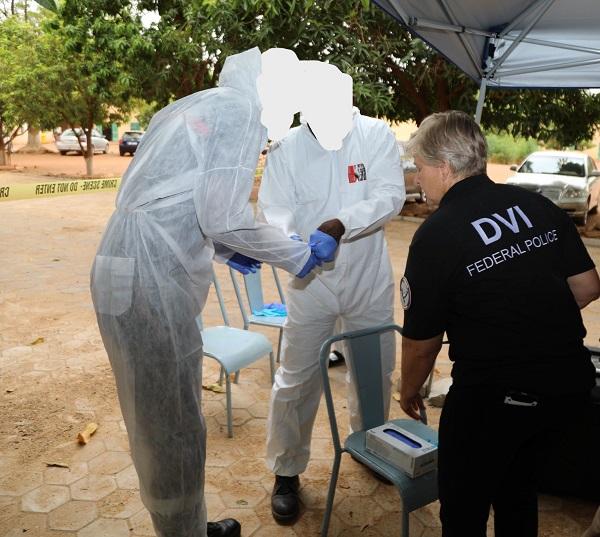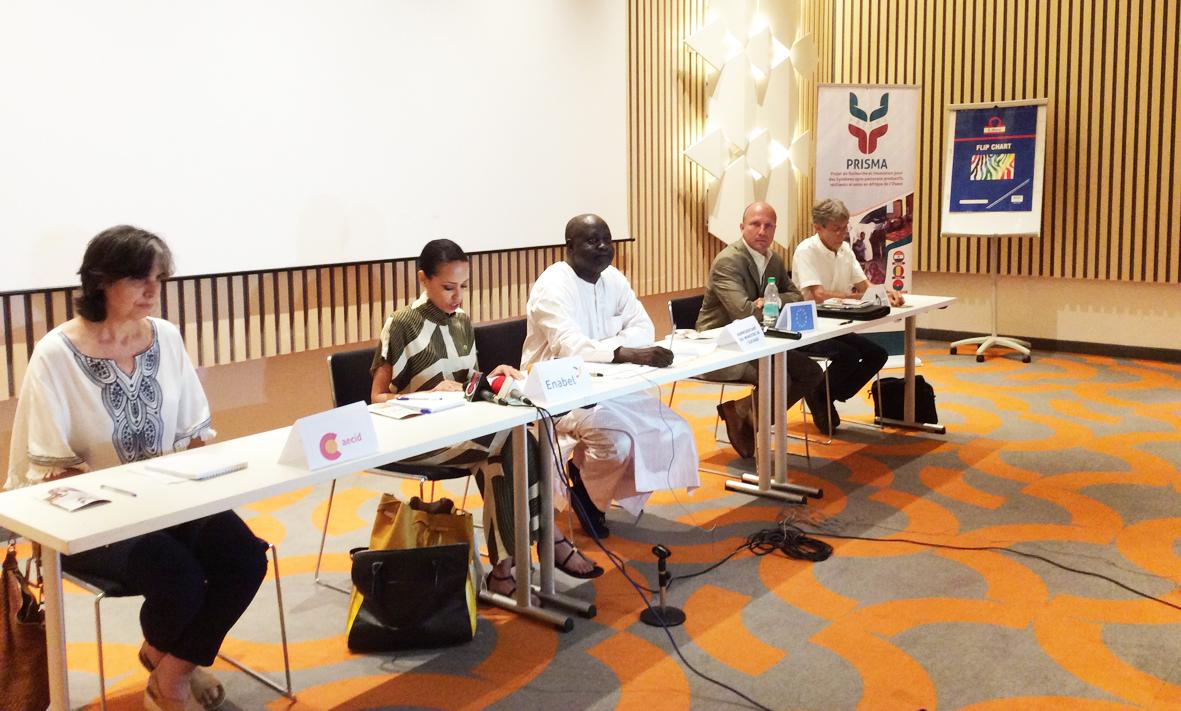Rechercher
Affichage de 1590 à 1605 sur 3123 actualités
-
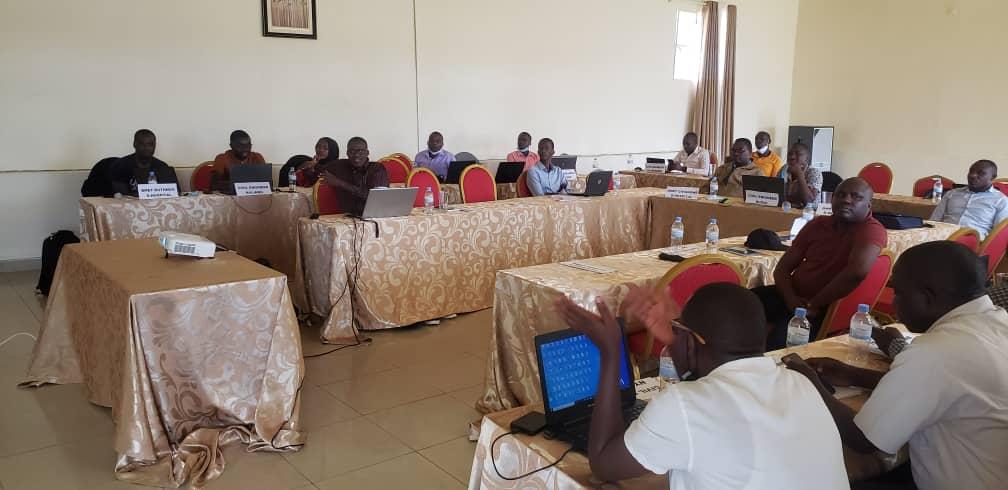
Rwanda: Health facilities maintenance at the center of medical service delivery
Florence STARING | 10/06/2022
Enabel/Barame project organized a five-day workshop, from 8-13 May 2022, for Hospital Biomedical Technicians and District Civil Engineers of Barame catchment area to sharpen their health facilities' infrastructure maintenance skills. The training aimed to keep the health facilities' infrastructure operational to ensure high-quality service delivery. During the workshop that took place in Muhanga District, Enabel provided 27 Hospital Infrastructure Technicians and District Engineers with the required knowledge to set up and conduct facilities maintenance.The staff deepened their understanding of a good maintenance plan, facilities management, and medical facilities inventory. At the end of the workshop, the participants testified on the necessity to train all maintenance stakeholders in hospitals, districts, and RBC to set up a sound healthcare technology management system in order to meet the quality improvement and accreditation requirements to deliver proper and standard health facilities' infrastructure maintenance. As a result of the workshop, a formal maintenance plan for infrastructure in the seven Districts of Barame project's catchment area was developed. In addition, biomedical technicians will ensure effective monitoring maintenance framework contracts. Building maintenance agents in medical facilities ensure the reliability of infrastructure and installations and the safety of patients or staff. The common point is to ensure the proper functioning of existing installations, both in prevention and correction, and contribute to quality and safety objectives. The maintenance engineer/technician ensures that operations run smoothly, issues are solved practically or escalated expediently, and saves maintenance capital wherever possible. Compliance is key to the ongoing success of any maintenance engineer. In addition to comprehensive school education, they need regular training to stay up-to-date with the latest requirements and industry best practices.
-
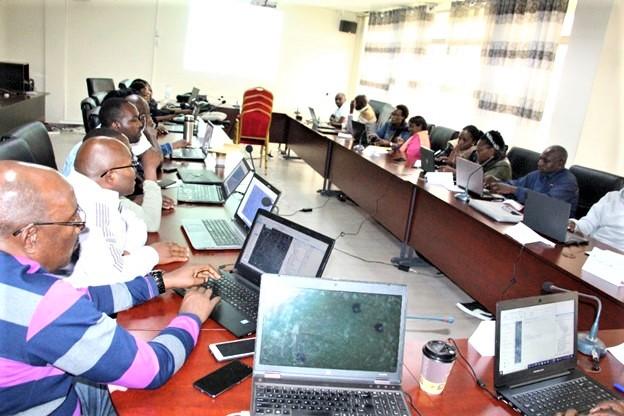
Urban Economic Development initiative (UEDi) to sharpen the GIS capacity in Rwanda
Denise NSANGA | 10/06/2022
The Urban Economic Development Initiative (UEDI) in partnership with Rwanda’s Ministry of Infrastructure (MININFRA) and Rwanda Housing Authority (RHA) is conducting GIS capacity building sessions to the staff of different units of the Districts of intervention namely Musanze, Rubavu and Rwamagana. The five-day training sessions aim at building the capacity of beneficiary district’s staff in the use of digital inspection tool, web-based GIS, and engineering software. The training will scale up technical skills on how to utilize the inspection and GIS/Surveying equipment provided to districts under the Urban Economic Development initiative (UEDi). More particularly, the training aims to improve the delivery performance of districts staff in areas of updating the Urban dynamic Maps (UDM) in real time, and actively contribute to linking the economic and spatial planning. Capacity building is one of the UEDi components to ensure quality delivery but also sustainability of the project’s results. In that context, Rwanda Housing Authority provided districts with modern GIS IT and inspection equipment and is in the process of building Urban Dynamic Maps (UDM) and works with MININFRA to decentralize the Spatial Development Framework (SDF) and its Decision Room as an effort to support the e-city management and smart City development within beneficiary districts. The trainings are designed in such a way that vivid interactions in the form of brainstorming, questions- answers, reflections, case studies, group works, plenary session, etc. are used to maximize the learning effectiveness during the sessions. Rwanda’s Ministry of Infrastructure (MININFRA), Rwanda Housing Authority (RHA) and Enabel are implementing the Belgian-funded Urbanization programme in three districts of Rubavu in the Western Province, Musanze in the Northern Province and Rwamagana in the Eastern Province, for the period of 2019-2024.
-
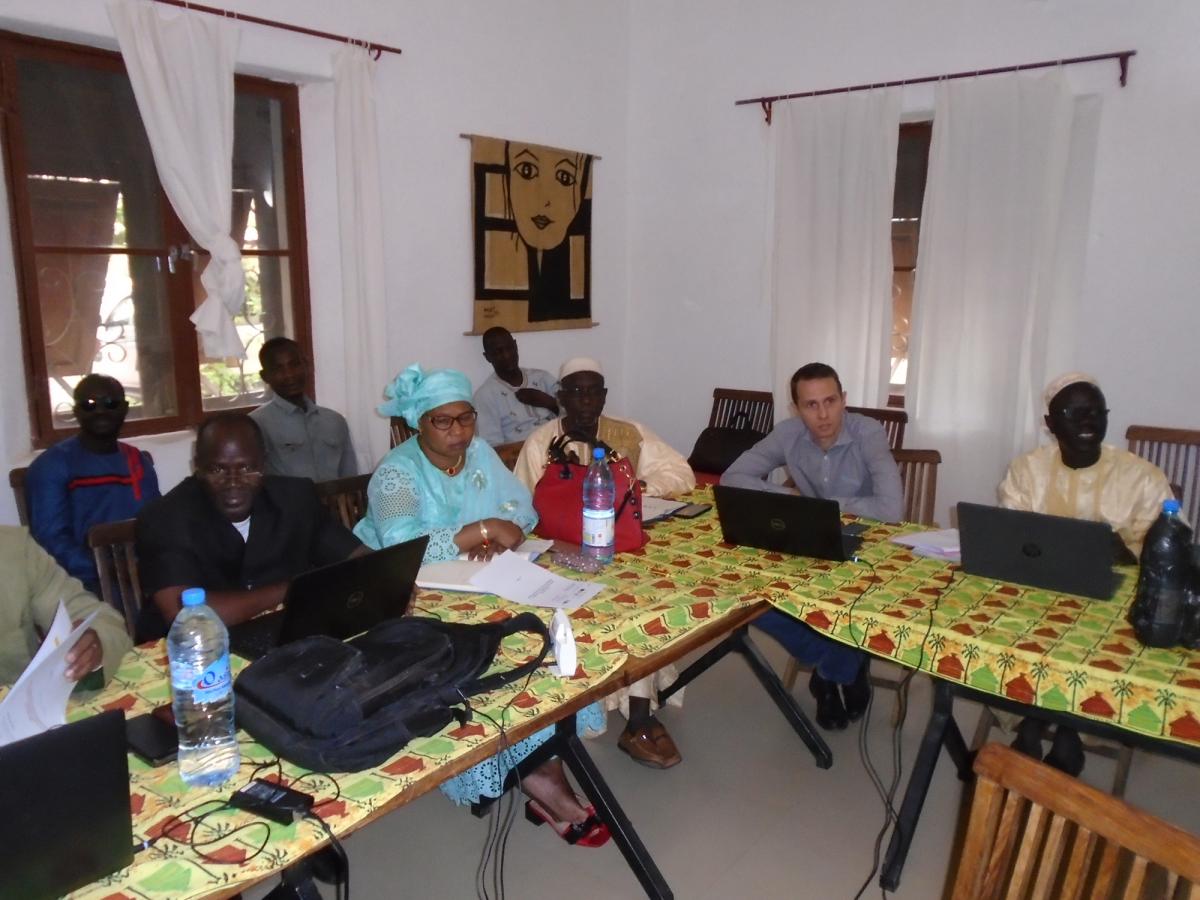
Atelier de réflexion sur le développement de la pisciculture au Mali
Nènè TRAORE | 09/06/2022
Le Projet d'Appui à la Filière Halieutique au Mali (PAFHa+) et le Projet JEGE NI JABA ont coorganisé à Koulikoro les 7 et 8 juin 2022 un atelier d'appui à la définition d'une stratégie de développement d'écloseries de proximité au Mali.Le développement de la pisciculture au Mali se heurte à certaines contraintes dont la faible disponibilité en alevins de qualité et à des prix abordables dans les régions. Les infrastructures de production d'alevins étant situées pour la plupart aux alentours de Bamako, la capitale, le transport d'alevins vers les régions est difficile à organiser sur de longues distances. Les coûts de transport renchérissent fortement les coûts d'acquisition des alevins pour les pisciculteurs et les comités de gestion des plans d'eau communautaires. Il apparaît clairement qu'il n'est pas pertinent d'envisager un schéma dans lequel les écloseries de la banlieue de Bamako pourraient répondre à la demande en alevins exprimées en régions.Il devient alors nécessaire de développer les capacités locales de production d'alevins grâce au développement d'un réseau d'écloseries dans toutes les régions du Mali. Au cours de cette rencontre, les échanges ont porté entre autres sur : les contraintes et les défis pour la production et la livraison d'alevins de qualité selon les bonnes pratiques, la vision des participants (par rapport notamment au modèle d'écloserie à promouvoir au profil des promoteurs, au prix des alevins), les changements à opérer (en matière de formation / RC, de financement, d'organisation pour piloter les changements) en vue d' atteindre la « vision commune ». Une feuille de route a été proposée pour atteindre la vision commune souhaitée.Elle a défini les activités à réaliser, les responsabilités de chaque acteur dans la mise en œuvre des changements souhaités et les perspectives pour cette rencontre.
-
Enabel appuie le Burkina Faso dans la mise en œuvre et l’opérationnalisation d’un service d'Identification des victimes
Kimsegninga SAVADOGO | 09/06/2022
Enabel accompagne le Ministère en charge de la sécurité pour la création et la mise en œuvre d’un SIVA. Son projet COPOL, soutenu par la Police fédérale belge à travers son service DVI (Disaster Victim Identification), a organisé une formation de base (type Interpol) en prélude à la création d’un SIVA doté de compétences nationales, au Burkina Faso au sein des Forces de sécurité intérieure (FSI). Selon les principes directeurs de l’Organisation Internationale de Police Criminelle (Interpol), les équipes d’identification des victimes de catastrophes sont interdisciplinaires et font appel aux services de spécialistes dans différents domaines, en fonction des besoins. C’est la raison pour laquelle l’accompagnement d’Enabel se justifie par le fait que le Projet COPOL G5 Sahel Burkina Faso prévoit dans son résultat 3 de renforcer les liens de la Brigade Spéciale d’Investigations Anti-terroristes (BSIAT) avec les services de Police Technique et Scientifique de la Police Nationale et de la Gendarmerie Nationale, qui sont tous des services pluridisciplinaires. Durant les 12 jours de formation, soit du 09 au 20 mai 2022, les participants ont eu droit à des exposés théoriques suivis de cas pratiques sur plusieurs thématiques liées à l’identification des victimes et des auteurs. On peut citer entre autres thématiques : Les principes d'engagement d’Interpol ; Récupération des victimes (théorie + pratique) ; Entretien et formulaires ante-mortem avec les familles (théorie + pratique) ; Examen et formulaires post-mortem des victimes décédées (théorie + pratique) ;Identification et réconciliation ; Protocole d’accord avec service d'assistance policière aux victimes ; Cas vécus (attentats, catastrophes naturelles, accidents, incidents). Selon Patrick VANHEES, Expert international en Police Judiciaire du Projet COPOL, « L’un des objectifs de cette formation initiale est de former un réseau d’experts nationaux en identification de victimes de catastrophes. Le but final est de disposer d’un réseau commun d’experts SIVA (policiers et gendarmes mais aussi de centres de crise, Croix-Rouge, protection civile, médecins légistes, odontologues, laboratoires, forces de défense, etc.) et des équipements et matériaux d’identification (appareils spécialisés de photographie, morgues mobiles, tables, matériel d’éclairage…). » Au total, une trentaine de personnes ont pris part à cette première formation dans le domaine SIVA (DVI) qui est une formation ciblée pour des personnels ayant déjà une expérience dans le domaine de l’identification des victimes. En rappel, le Projet COPOL, mis en œuvre par Enabel au Burkina Faso, est financé par l’Union européenne.
-
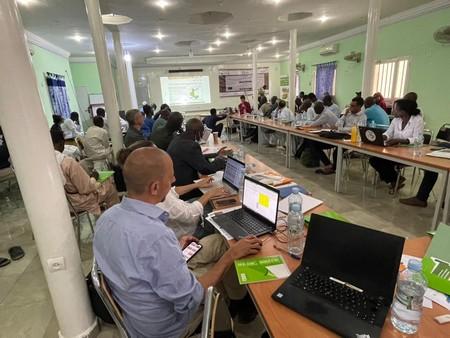
Forum sur les dynamiques des ressources naturelles et socio-économiques en Mauritanie
Aminata KANE | 06/06/2022
Un forum sur les dynamiques des ressources naturelles et socio-économiques dans le Sud de la Mauritanie, s'est tenu à Kaédi du mardi 31 mai au jeudi 2 juin 2022.Cette initiative du GRDR co-portée par ses partenaires IPAR financé par Enabel, AMCC2 et IRAM, s’inscrit dans la continuité des travaux du groupe thématique « Gestion Territoriale des Ressources naturelles » de la plateforme RIM-Rural (www.rim-rural.org), se tient sous le haut patronage du Wali (Gouverneur) de la région de Gorgol.IPAR sous la coordination d'Enabel met en œuvre le site RimRural qui est la plateforme du dialogue sectoriel et la référence au service du développement rural en Mauritanie.Des intervenants internationaux (France, Niger et Sénégal) et nationaux ont contribué à cette activité.Ce forum a pour objectif de :Partager les connaissances disponibles sur les dynamiques environnementales et tout particulièrement sur la pluviométrie, les températures, les ressources ligneuses, herbacées et les points d’eau. Il s’agira notamment d’évaluer dans quelle mesure il est possible de parler d’un reverdissement du Sud mauritanien, de croiser les points de vue sur le sujet et d’aborder les retombées socio-économiques des dynamiques constatées ;Revenir sur les nombreuses initiatives soutenues ces dernières années (2016-2021) pour contribuer à la résilience environnementale, selon une approche décentralisée (AGLC, approche intercommunale de GRN, dispositifs de sécurisation foncière etc.). Il s’agira tout particulièrement de discuter de l’impact de ces initiatives sur les ressources naturelles ainsi que sur les inégalités socio-économiques/foncières. Les conditions de pérennisation et d’extension des initiatives les plus probantes seront également débattues ;Echanger sur les priorités d’action pour les prochaines années sur la base d’une analyse prospective.Ce forum constitue un moment d’échange autour des questions cruciales des dynamiques des ressources naturelles qui permet aux différents acteurs du domaine, de partager leurs expériences et les pratiques de reverdissement de la nature. Il regroupe des chercheurs, des organisations socioprofessionnelles, des ONG nationales et internationales, les services de l’Etat, les élus.
-
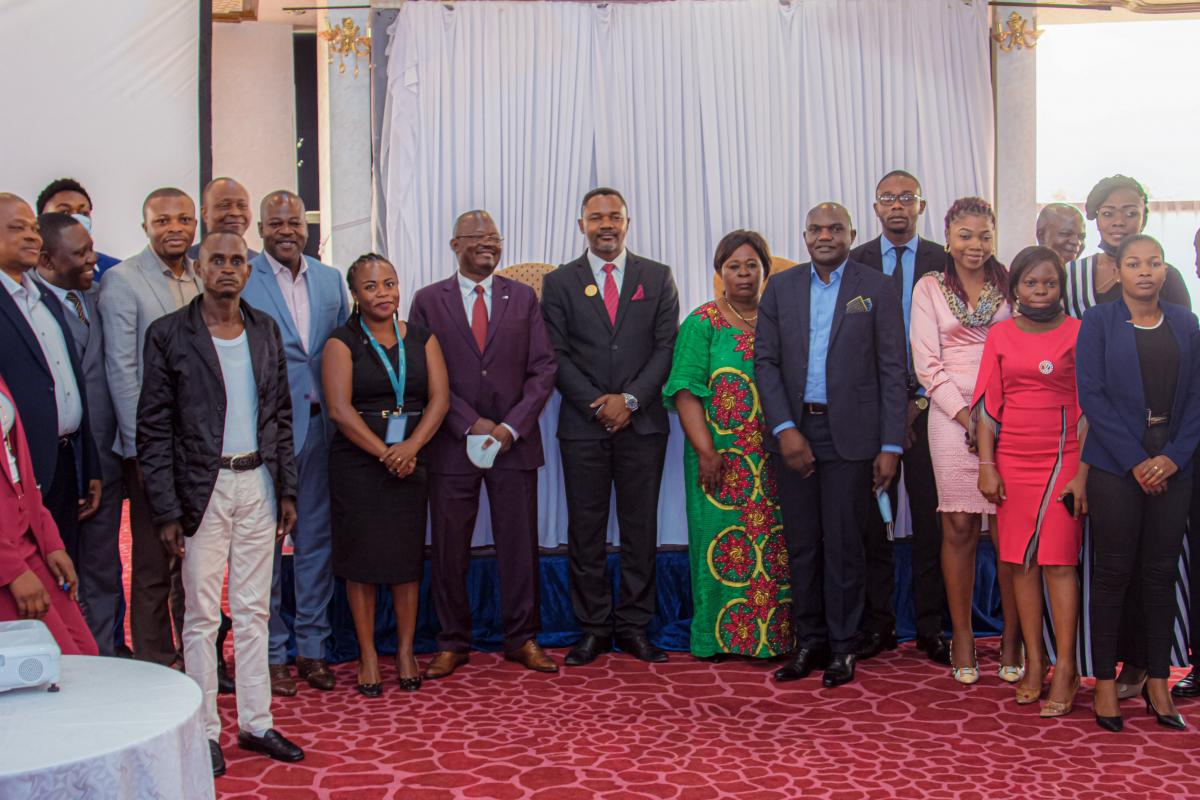
Présentation des résultats de l’étude sur les menaces anthropiques dans les tourbières de la RDC
Grâce MALI FAIDA | 03/06/2022
Le Centre de recherche en eau du bassin du Congo (CRREBaC) et l’Unité de gestion des tourbières (UGT) du Ministère de l’Environnement et Développement durable ont procédé à la présentation des résultats de l’étude sur les menaces anthropiques dans les tourbières de la République démocratique du Congo. C’était au cours d’un atelier organisé à Kinshasa, ce mardi 31 mai.“Nous avons donc mené cette étude dans six provinces et nous sommes là pour la présenter et après nous allons passer à l’étape de consultation des parties prenantes afin de pouvoir identifier de manière préliminaire les piliers sur lesquels devra se fonder la stratégie nationale des tourbières”, a expliqué Jean Jacques Bambuta, coordonnateur national de l’Unité des gestions des tourbières (UGT).L’étude démontre que l’agriculture itinérante sur brûlis, le drainage, l’extraction pétrolière, l’exploitation forestière artisanale, l’élevage, la pollution de l’eau, le développement des cultures industrielles, l’aménagements des infrastructures, le sédiment des zones humides sont autant des menaces qui guettent cet écosystème.“Nous sommes en train d’assister actuellement aux enjeux pour lesquels les tourbières sont au centre de préoccupation au niveau international. Il faudra qu’on arrive à protéger les tourbières dans le bassin du Congo. Il y a des stratégies qui sont en train d’être mises en place, celles-ci devraient aussi tenir compte d’une part de la conservation des tourbières d’autres part des besoins de la population qui vit au niveau de ces tourbières”, a déclaré Raphaël TSHIMANGA, directeur du (CRREBaC).Cette étude financée par ENABEL (Agence belge de Développement), a été réalisée dans les provinces de la Mongala, Mayi-Ndombe, Equateur, Tshuapa, Tshopo et Sud-Ubangi.Les scientifiques recommandent notamment d’accélérer les processus d’élaboration d’un Plan national de gestion des tourbières pour permettre aux communautés riveraines de conserver de façon harmonieuse cet écosystème.Pour cela, il faut mettre en place au profit de ces communautés, des activités génératrices des revenus, améliorer les conditions des vies socio-économiques de la population, renforcer les capacités et former les personnels, faire le reboisement dans des espaces menacés, pratiquer l’agriculture durable, impliquer l’aménagement du territoire dans l’affectation des terres et autonomiser financièrement les femmes et les peuples autochtones.“Les techniciens qui ont réalisé cette étude, ont voulu présenter les résultats pour aider les uns et les autres surtouts nous les administrations à prendre des options idoines et des précautions”, a conclu Benjamin Toirambe, secrétaire général au développement durable.Rappelons qu’à la suite de la troisième réunion de l’initiative mondiale sur les tourbières, ténue en République du Congo (RC) en mars 2018, la RDC a lancé son programme de conservation et valorisation des tourbières. La vision nationale définie de cette zone marécageuse se résume à la protection de la nature et des peuples.Silas MUNGINDA
-

Au Mali, Enabel expérimente l’architecture «Voûte nubienne»
Nènè TRAORE | 02/06/2022
Le projet "Formation des acteurs de la filière écoconstruction en Voûte Nubienne dans la Commune de Guégnéka, Cercle de Dioïla au Mali", mis en œuvre par l'Association Voûte Nubienne(AVN) Mali à Guégnéka dans le Cercle de Dioïla entre septembre 2020 et fin mars 2022 avec le soutien d'Enabel s'est inscrit dans le cadre du Programme de Coopération bilatéral Mali-Belgique et son intervention de renforcement des capacités des institutions et organisations de la société civile de la région de Koulikoro. Les populations de la commune de Guégnéka, comme plus largement celles du Cercle de Dioïla et des autres collectivités rurales du Centre du Mali, font face à l'insécurité alimentaire, au manque de perspectives de formations et d'emplois locaux et notamment des habitats et bâtiments communautaires peu adaptés au changement climatique. Le Projet de Renforcement de Capacité (IRC) a pu renforcer les capacités individuelles des jeunes ruraux de la commune en techniques de construction utilisant des matériaux locaux, bas-carbone, durables et économiques et a pu atteindre les résultats suivants : Mobilisation des acteurs de la construction classique et des jeunes ruraux sans emploi en période sèche dans un cursus de formation duale permettant l'acquisition des métiers de la filière VN : 12 nouveaux apprenants mobilisés et engagés dans le parcours de formation. 28 apprenants engagés dans un cursus de formation duale, dont 9 sortiront avec un niveau de maçon VN, 7 avec le niveau d'artisan maçon VN et les autres sortiront apprentis maçons. Mobilisation, sur la commune, de clients privés locaux (avec incitation financière à la construction adaptée) et des maîtres d'ouvrage (acteurs institutionnels et/ou opérateurs économiques ayant des besoins en construction) avec le financement de bâtiments communautaires: les chantiers écoles mis en place dans le cadre de la formation duale permettent aux apprenants de disposer de 14 chantiers-écoles en Voûte Nubienne exemplaires et (aux coopératives de disposer de 4 infrastructures communautaires à usage agricole. Sensibilisation des acteurs institutionnels et opérateurs économiques à la nécessaire évolution et adaptation du secteur de la construction et mobilisation d'un opérateur issu de la société civile mis en capacité de permettre la méthodologie territoriale AVN sur la commune à la fin du projet:Les organisations de la société civile et la commune sont sensibilisées et mobilisées pour la promotion au niveau territorial d'un « habitat adapté et décent » selon l'architecture Voûte Nubienne.
-
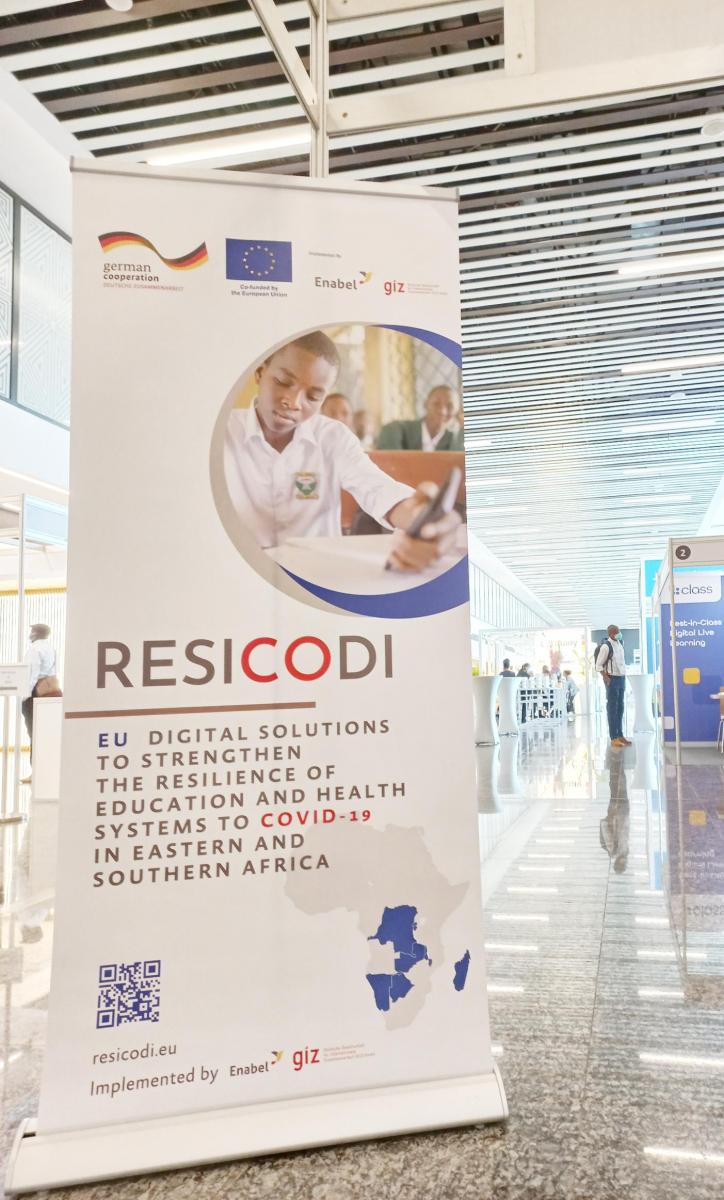
EVENT - Sharing good practices on digital skills at eLearning Africa 2022 in Rwanda
Philippine DE BRUYN | 02/06/2022
From 11 to 13 May, the eLearning Africa conference took place in Kigali. This event was a good opportunity for the RESICODI implementation partners to present the project and exchange on good practices in the digital skills sector. Indeed, during this event, the project benefited from a double visibility. On the one hand, being present at the stand of the implementation partner Enabel was an opportunity to exchange with the visitors on the different sectors of implementation of the Action but also on the expected results. On the other hand, during different workshops, colleagues working in the field in different actions of the RESICODI project (both from GIZ and Enabel) were able to share with the participants good practices and learnings from the programme.
-
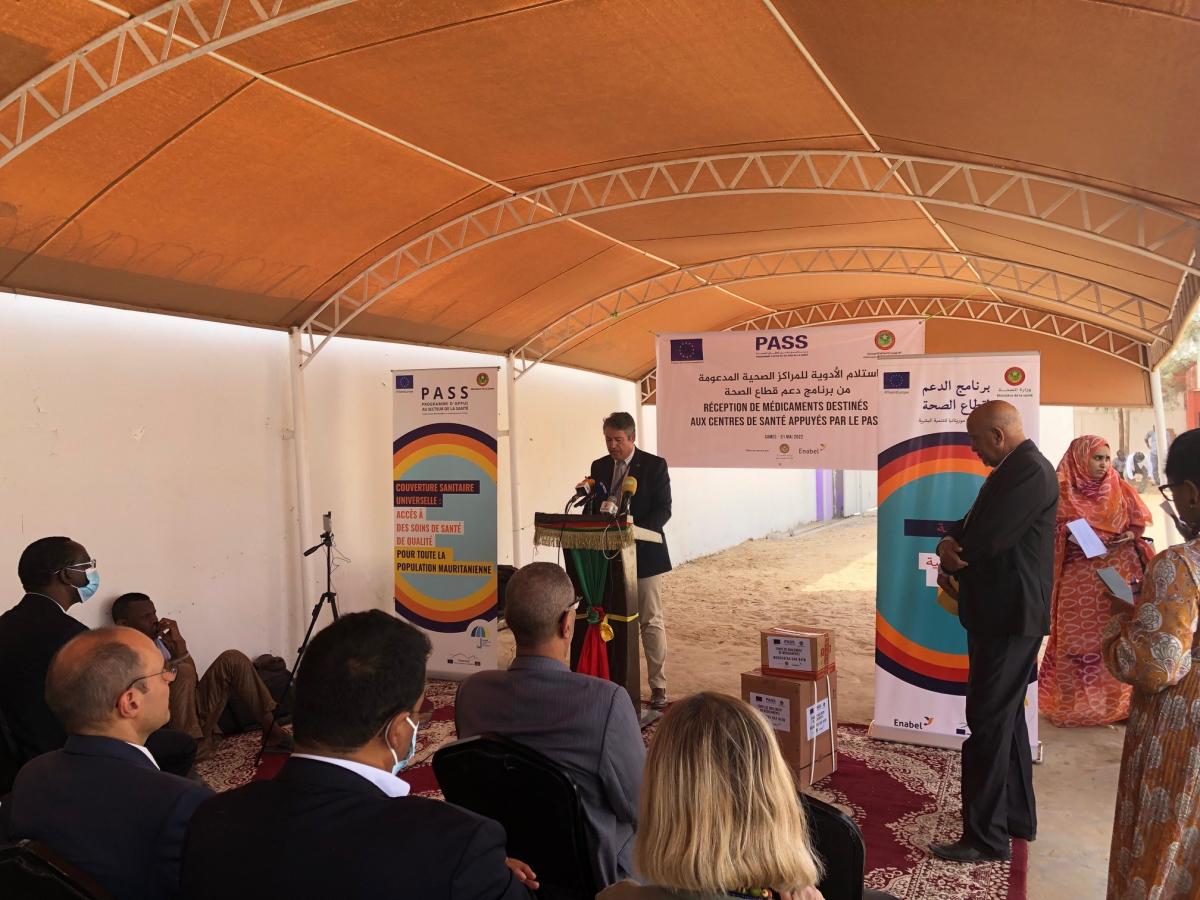
Mauritanie: Cérémonie de remise officielle de médicaments destinés aux pharmacies de centres et postes de santé
Aminata KANE | 01/06/2022
Une cérémonie marquant la remise officielle d’une dotation en médicaments destinés aux pharmacies de centres et postes de santé appuyés par le Programme d’Appui au Secteur de la Santé (PASS) mis en œuvre par Enabel et financé par l’Union européenne, a eu lieu ce Mardi 31 mai 2022 à 10 heures au siège de la Centrale d’Achat des Médicaments et Consommables (CAMEC).La dotation objet de cette cérémonie constitue le premier lot en médicament (d’une valeur de 1,3 million de MRU) de l’appui du PASS aux structures de santé des Moughataas de Bababé, de Boghé, d’Aleg, de Sebkha et de Dar Naim. Cette dotation composée de médicaments génériques, essentiels et consommables, est destinée à renforcer les capacités de 34 structures sanitaires pour améliorer l’offre de soins et pour éviter les ruptures répétées, principal handicap à la satisfaction de la demande au niveau primaire de la pyramide sanitaire. Elle permettra aussi de renforcer le fonds de roulement de ces centres et postes de santé.Par la suite, il est prévu une seconde dotation en médicament et des équipements pour les pharmacies, d’une valeur approximative de 3 millions de MRU. L’amélioration de l’offre de soins est l’un des fondements sur lequel repose la mise en place effective d’une assurance maladie à savoir la Caisse Nationale de Solidarité en Santé (CNASS) qui est une contribution significative à la Couverture Sanitaire Universelle et un engagement du gouvernement de la République Islamique de Mauritanie.Le PASS, financé par l’Union européenne, est mis en œuvre à travers trois modalités à savoir un appui institutionnel appelé AI-PASS exécuté par l’Agence Belge de Développement (Enabel), un appui direct au Ministère de la Santé pour la mise en œuvre du PNDS coordonné par l’Unité de Coordination du PASS (UC-PASS) et un appui budgétaire au gouvernement mauritanien.Le PASS a pour objectif spécifique d’améliorer l’accès équitable aux soins de santé de qualité, en ligne avec les objectifs du PNDS et de la stratégie nationale de protection sociale (SNPS).
-
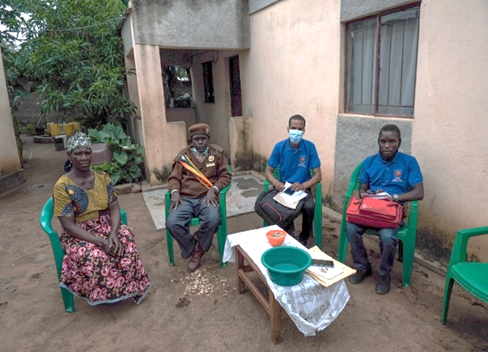
Mozambique: Assessing differentiated energy access through the Multi-Tier Framework (MTF), a learning survey exercise
Akila MUNIR | 31/05/2022
Human welfare has always been closely linked to an appropriate provision of energy. However, in 2019, 600 million people in Sub-Saharan Africa did not have access to electricity and about 900 million people were lacking access to clean cooking energy (IEA, 2019). Mozambique is one of the countries that suffers from energy poverty, with only 40.3% of its population having access to energy (MIREME, 2021). But what does access to energy exactly mean? There is, unfortunately, no universal definition and hence no accurate measurement. The Multi-Tier Framework (MTF) approach to measuring energy access promoted by the World Bank (see https://mtfenergyaccess.esmap.org/) introduces a tiered measurement methodology, based on various energy attributes, such as quantity, quality, affordability, and duration of supply. This methodology focuses on the level of available energy services from the consumer's point of view, and distinguishes 5 different tiers. These range from 0 - which represents no significant access to any electricity at all, to 5, which corresponds to at least 23h of electricity per day. Similarly, a Multi-Tier Framework for measuring access to cooking solutions has been elaborated, based on levels of cooking exposure, cookstove efficiency, convenience, safety, affordability, and fuel availability.In order to better understand the current level of energy poverty in Mozambique, Enabel supports the Ministry of Mineral Resources and Energy (MIREME) with one pilot survey that uses the MTF methodology. The methodology is adapted for this purpose and monitored by VITO, a Belgian independent research organization in clean technology and sustainable development (see https://vito.be). The objective of this learning exercise is to introduce technical government staff from the central and provincial level to the implementation of MTF surveys and their potential to better inform local planning and monitoring of universal access to affordable, reliable, sustainable, and modern energy. In the Central Region of Mozambique, which is the geographical focus area of the Mozambican-Belgian bilateral cooperation project CB MIREME/ARENE, the provinces of Tete and Zambezia were identified for this learning survey. Tete because it has an area that is directly connected to the Cahora Bassa dam, the largest hydroelectric scheme in southern Africa. Zambezia was selected because it has the largest solar plant in Mozambique (40 MW). The first surveys were conducted in Tete, between 28th of March and 16th April 2022, in Cahora Bassa District (urban), and Chifunde District (rural). A total of 71 households were surveyed. The second survey covered 81 households in Zambezia, between 25th of April and 9th of May in Mocuba District (urban), and Milange District (rural). It is important to note that the selection of the districts and neighborhoods was done by the Provincial Services for Infrastructure (SPIs), and took into consideration on- and off-grid consumers and different energy sources.Technical staff from the SPIs, MIREME central level, the Energy Regulatory Authority ARENE, and the Energy Fund FUNAE participated in the learning exercise. The participants were unanimous in recognizing the importance of the MTF methodology. Their first observations are that, even where households have access to the national or a decentralized grid, they only use it for particular activities, such as charging phones, and not for basic needs, such as cooking. Electricity from the national grid is found to be too expensive for energy-intensive activities. It also became apparent that households connected to a local decentralized grid paid much less for electricity than those connected to the national grid.It is important to reiterate that due to time and methodological constraints, proper probabilistic sampling methods were not considered for this learning exercise. The data are not intended to draw statistically significant conclusions, but rather to better understand the collection and analysis of energy data, based on the MTF methodology. We will report in full on the data collected through our random walks, once VITO has been able to assist us in their final analysis. To statistically answer the actual state of energy access of Mozambique’s population, a national survey is deemed advisable. However, we can already conclude that there is a clear need for more affordable and sustainable solutions to electrification and cooking, powered by renewable energy. The promotion of such solutions will assist Mozambique in achieving its ambition to green its energy mix and mitigate the impacts of climate change, which are increasingly being felt in the country.
-
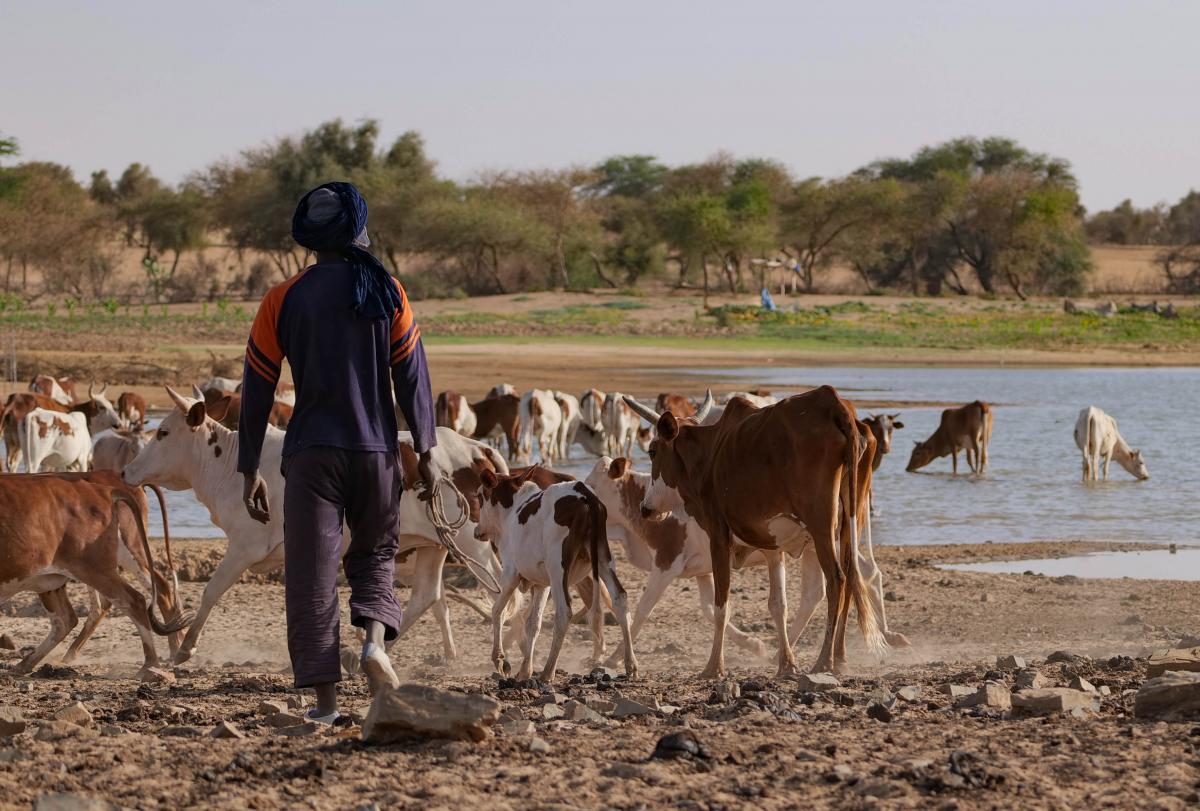
Mauritanie: Atelier de restitution d'études sur la valorisation et la consommation du lait local
Aminata KANE | 31/05/2022
Dans le cadre du programme RIMFIL financé par l’UE et mis en œuvre par Enabel, sous le haut patronage de M. Mohamed Ould SOUEIDATE, Ministre de l’Elevage, a eu lieu le 24 mai 2022 à Nouakchott, l'atelier de restitution sur deux études qui ont été réalisées au profit du développement de la filière LAIT en Mauritanie.La première étude porte sur la valorisation du lait local en Mauritanie. Elle formule des recommandations pour améliorer les conditions de collecte et de transformation du lait local sur les marchés locaux et nationaux. Puis d'arriver à substituer les produits importés et la poudre de lait par du lait local.La seconde étude est une enquête de référence sur la consommation des produits laitiers en Mauritanie réalisée par BUMEC (Bureau Mauritanien d’Études et de Conseil) dont l’objectif général consistait à estimer quantitativement et qualitativement la consommation des produits laitiers et dérivés au niveau des centres de consommation urbains et ruraux.Elle devrait permettre d’évaluer la contribution de la filière lait à la satisfaction quantitative et qualitative des besoins du marché national et faciliter une meilleure compréhension du niveau et de l’évolution des habitudes alimentaires des populations. La finalité consiste à contribuer à l’orientation des décideurs et des opérateurs économiques du secteur laitier quant à une meilleure prise en compte de la problématique de la disponibilité des produits laitiers au regard de la demande des consommateurs.Ce sont donc deux contributions utiles pour la filière LAIT LOCAL à travers la production de connaissances mais surtout une analyse de laquelle découleront des orientations pour que le lait mauritanien joue pleinement sa partition dans le développement socioéconomique du pays. L’ensemble des parties prenantes soutenant le LAIT mauritanien ont participé à l'événement : les services de l’Etat;les partenaires techniques et financiers;les ONG nationales et internationales; etle secteur privéLe but de l'atelier est d' :– Enrichir l’analyse issue de ces deux études pour le développement du lait mauritanien ;– Identifier ensemble les actions pertinentes à entreprendre pour soutenir l’essor du lait mauritanien : vers un plan d’actions Lait Local.Photo: Sylvain Maire, Mauritanie
-

La maintenance biomédicale au Burundi, c'est possible!
Jonas Eric UWIZERA | 27/05/2022
Le PAISS 5 appuie le ministère de la santé dans l’amélioration de la qualité des soins au travers d’investissements réfléchis et durables dans des infrastructures et des équipements de qualité dans 5 provinces d’intervention. L’originalité du PAISS 5, c’est la démarche d’accompagner tous les investissements faits par une stratégie de maintenance qui est un résultat à part entière de l’intervention. Le PAISS 5, avec un budget dédié de près de 10% de ses investissements suit une démarche reconnue dans la gestion du patrimoine qui est de prendre en compte en plus des coûts d’achat, des coûts cachés souvent oubliés (coûts de maintenance, de formation, d’utilisation, de réforme, RH, …) et qui, s’ils sont négligés, réduisent la durée de vie des investissements.Pour en savoir plus sur les 5 composantes de la stratégie de maintenance décentralisée testée de manière pilote à petite échelle et dupliquée avec succès par le PAISS 5, regardez la vidéo.
-
Lancement du projet PRISMA au Niger
Halissa HASSAN DAN AZOUMI | 26/05/2022
Lancement officiel ce 26 mai 2022, à Niamey, du projet de recherche et innovation pour des systèmes agro-pastoraux productifs, résilients et sains en Afrique de l’Ouest – PRISMA PRISMA entend contribuer à une transformation agroécologique adaptée au changement climatique des systèmes d’agropastoralisme pour les rendre plus productifs, résilients et sains pour les animaux, les humains et l’environnement. Il couvre la Communauté économique des États de l’Afrique de l’Ouest (CEDEAO) et ses pays sahéliens : le Niger, le Mali et le Burkina Faso Il est financé par l’Union européenne à hauteur de 6 Millions d’euros avec une contribution 495 000 euros de la coopération espagnole et sera exécuté par 3 agences à savoir l’Agence belge de développement – Enabel, la Coopération espagnole – Aecid et l’Agence luxembourgeoise pour la coopération au développement – LuxDev pour une durée de 4 ans. Ces trois agences d’exécution, travailleront ensemble et en complémentarité pour l´attente des résultats et des objectifs du projet.
-
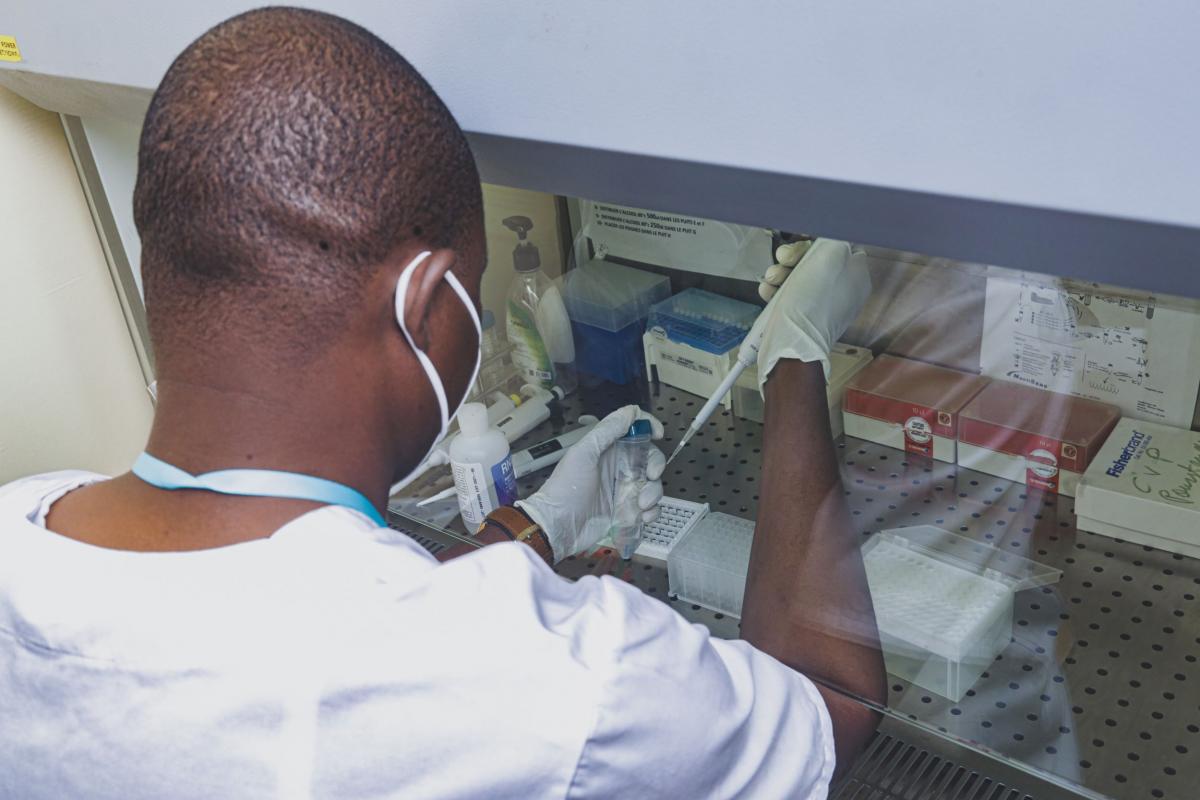
Au Burkina, Enabel évalue l’impact et les effets de la Covid-19 sur le secteur agricole et la sécurité alimentaire
Adama GNANOU | 25/05/2022
La crise sanitaire de la COVID-19 qui a ébranlé tous les secteurs d’activités au Burkina Faso comme partout d’ailleurs dans le monde a causé d’énormes dégâts de nature à fragiliser les ménages. Les données collectées auprès des ménages et entreprises agricoles et des structures faîtières du monde rural dans la région du Centre-Est du Burkina Faso, ont permis d’établir une comparaison entre les campagnes humides et/ou sèches avant et après la première vague de la COVID-19.Au terme de cette étude réalisée en 2021, il ressort clairement que la COVID-19 a eu un impact et des effets négatifs sur le secteur agricole et la sécurité alimentaire dans la région du Centre-Est. Ainsi, au titre des ménages agricoles, les conséquences qui ont été de degré divers ont porté sur les superficies et spéculations emblavées, la commercialisation des produits agricoles et pastoraux, les prix des produits agricoles et pastoraux, le financement des intrants agricoles, la main d’œuvre rémunérée, la disponibilité et l’accessibilité des intrants de production végétale et animale, la disponibilité et l’accessibilité de la main d’œuvre et le service d’appui-conseil/vulgarisation aux exploitants agricoles. Au plan de la sécurité alimentaire et des conditions socio-économiques, des conséquences ont été enregistrées sur la situation alimentaire (l’approvisionnement en nourriture), les dépenses de santé et le remboursement de crédits des ménages. L’étude a été conduite en collaboration avec les Directions régionales, de l’économie et de la planification (DREP) ; de l’agriculture, des aménagements hydro-agricoles et de la mécanisation (DRAAHM) de l’Institut national de la statistique et de la démographie (DR-INSD) toutes du Centre-Est. Elle a permis également de noter que l’Etat a pris des mesures pour accompagner les populations au rang desquelles les ménages et entreprises agricoles. Toutefois, il ressort que ces mesures n’ont pas été suffisantes pour soulager totalement les ménages et les entreprises agricoles. Adama GNANOU Assistant communication.
-
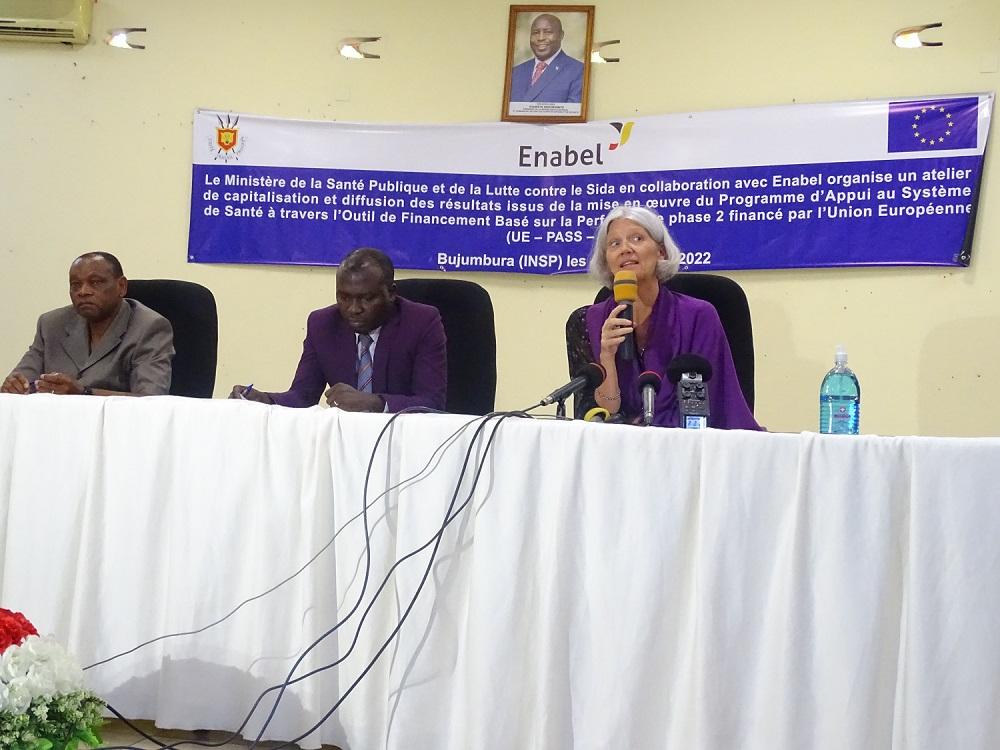
Burundi: Capitalisation et diffusion des résultats du Programme d’Appui au Système de Santé
Jean BIRONKWA | 25/05/2022
Le Ministère de la santé Publique et de la Lutte contre le Sida en collaboration avec Enabel a organisé un atelier de capitalisation et diffusion des résultats issus de la mise en œuvre du programme d’Appui au Système de Santé à travers l’Outil de financement basé sur la performance, UE PASS-FBP 2. Ce Programme qui est financé par l’Union Européenne a été exécuté dans 18 provinces du Burundi avec pour objectif d’améliorer l’état de santé de la population à travers un renforcement d’accès équitable aux soins de santé de qualité pour les femmes enceintes et les enfants de moins de 5 ans. Les directeurs généraux, les autres cadres du niveau central et périphérique du MSPLS, des experts ainsi que les représentants de l’Enabel, de l’Union européenne et d’autres partenaires au développement ont participé à cette rencontre organisée à l’Institut National de la Santé Publique INSP en mai 2021. Lancé en 2016 pour la première phase dans le but d’appuyer la stratégie nationale du FBP couplé à la gratuité et relancé de nouveau en 2019 comme deuxième phase, le Programme d’Appui au Système de Santé à travers l’outil de financement basé sur la performance a connu des succès dans l’atteinte de ses objectifs comme le témoignent les différents responsables du MSLS et d’autres rapports d’évaluation.Selon Dr Nzigirabarya Onesphore ,Assistant du Ministre en chargé de la santé , lors de l’ouverture de l’atelier , « Le PASS – FBP2 a mis en œuvre un certain nombre d’activités innovantes en vue de l’atteinte des objectifs qui lui étaient fixés, mais aussi des activités de recherche pour comprendre certaines des difficultés rencontrées dans la mise en œuvre du financement basé sur la performance couplée à la gratuité des soins pour les enfants de moins de 5 ans, les femmes enceintes et celles qui accouchent (FBP – G). La réalisation de ces activités a permis l’obtention d’un certain nombre de résultats intéressants. Aussi, au terme du PASS – FBP 2, il s’avère indispensable de partager avec les acteurs du système de santé burundais et les représentants des partenaires les résultats de certaines activités phares et des études réalisées entre 2019 et 2022 dans le cadre dudit programme. Dans ce même contexte, le MSPLS veut améliorer la qualité de l’offre des soins et de services de santé à tous les niveaux en général et au niveau opérationnel en particulier en renforçant le système de financement basé sur la performance au niveau des FOSA.Dr Etienne Mugisho, représentant du Représentant Résident d’Enabel, l’Agence Belge de Développement qui met en œuvre le Programme se réjouit d’avoir contribué à la politique du Gouvernement du Burundi à travers sa stratégie de financement basé sur les performances couplée à la gratuité des soins pour les femmes enceintes et les enfants de moins 5 ans. La Représentation de l’Enabel au Burundi réitère son engagement durable à apporter toujours sa contribution effective en vue d’une amélioration constante de l’état de santé de la population en générale et pour les plus vulnérables en particulier » De son côté, Anne KOFOED, chargée des programmes à la délégation de l'Union Européenne au Burundi a indiqué que le secteur de la santé occupe une place de choix à la délégation de l’Union Européenne. Depuis 2014, un tiers des financements de l’UE au Burundi a été affecté au secteur de la santé, soit à peu près 122 millions d’euros ; en peu plus de 250 milliards de BIF. Ceci pour dire que le secteur de la santé reste extrêmement important pour l’UE. Le Programme UE-PASS-FBP est financé par l’EU depuis 2016 et la deuxième phase prendra fin en Mai 2022. C’est donc un moment crucial de ressortir ce qui s’est bien passé, adapter et changer ce qui n’a pas marché. Les conclusions de l’atelier permettront de connaitre les succès et les erreurs à corriger pour atteindre la couverture sanitaire universelle à l’horizon 2027, a-t-elle conclu. Quelques résultats phares qui ont fait objet de diffusion A côté du cofinancement dans le paiement des factures des formations sanitaires (917000 € en moyenne par mois), le Programme a initié plusieurs approches qui contribuent à l’amélioration de la qualité des soins. Il s’agit des évaluations à l’improviste dans les CDS, des audits financiers, des audits cliniques au niveau des hôpitaux, du processus d’accréditations des FOSA qui est en cours au Burundi etc.... A cette occasion, les résultats de différentes études réalisées sur les déterminants de la qualité des soins offerts dans les formations sanitaires, les déterminants des investissements visant la qualité des soins dans l’approche de FBP dans les centres de santé, l’influence de la performance des BDS sur la performance de Fosa qui y sont rattachées ont été diffusés. Les participants à l’atelier ont identifié des leçons tirées de la mise en œuvre du Programme d’Appui au Système de Santé à travers l’outil de financement basé sur les performances pour en faire des bases d’amélioration de la qualité des soins et du système de santé au Burundi. Des recommandations et des engagements des acteurs du système de santé au Burundi et des partenaires au développement ont été formulés pour faire le suivi et l’appropriation des résultats développés dans la deuxième phase du Programme UE-PASS-FBP 2.
